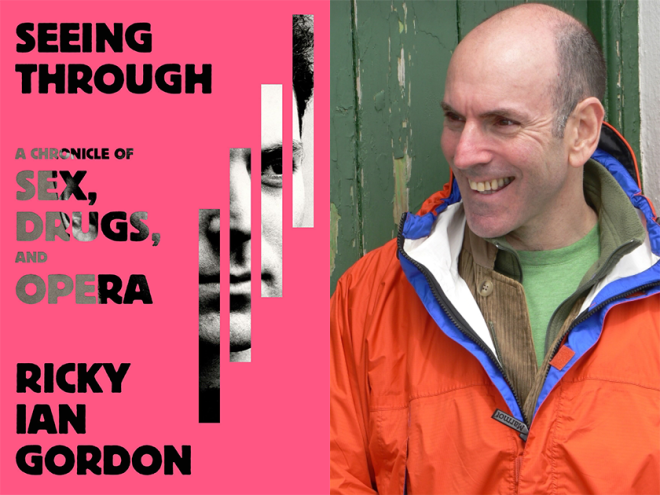Composers of opera are compelling storytellers. Ricky Ian Gordon is a master of the art — not only in his songs and operas, but also in this riveting, candid autobiography. He recounts his life story in an inviting voice that draws us in and with recollections that keep us turning pages.
Growing up on Long Island, the young Gordon inherited his mother’s love of music and began taking piano lessons. When his piano teacher gave him her copy of the Victor Book of Opera, it changed his life. So did his new friend, Peter, who shared his interest in opera, and in boys. After another gay friend went off to college at Carnegie Mellon, Gordon decided to audition to study in the school’s music department. He was quickly accepted, being already familiar not only with Bach and Beethoven, but also with many twentieth-century composers most college applicants would’ve never heard of.
Later, as a young adult in New York, his insecurities sharpened his understanding of people and allowed him to be more cognizant of his own emotional needs. As he became more confident in dating, he met the first great love of his life, Jeffrey Grossi, who would succumb to AIDS after many long months of declining health. It was a devastating loss for Gordon, who transmuted his grief into a scene in his autobiographical musical, Sycamore Trees.
“Music matters so much to me, but not necessarily to the world,” Gordon writes. Even if this assertion is correct, his own music certainly does matter. His opera Intimate Apparel was broadcast on PBS’s Great Performances, and his rendering of The Grapes of Wrath was performed at Carnegie Hall in April 2024. His adaptation of The Garden of the Finzi-Continis, about a Jewish family in Mussolini’s Italy, has been staged by the New York City Opera. Perhaps his most Jewish work is the opera Morning Star, about a Russian Jewish family on New York’s Lower East Side in the era of the Triangle Shirtwaist Factory fire.
At the heart of Gordon’s storytelling are the people in his life. He provides backstage glimpses of his work with poets, librettists, opera-company directors, singers, and musicians, as well as astute, caring insights about his parents, his sisters, and his many friends.
Throughout this memoir, Gordon is faithful to one of his most cherished beliefs: that “it is important for me to be naked in my work, because self-censorship means safe, less dangerous, and consequently less interesting.” It’s this directness and honesty that makes his writing so appealing, and it’s his sensitivity to human frailties that makes his observations so acute.
Bob Goldfarb is President Emeritus of Jewish Creativity International.





